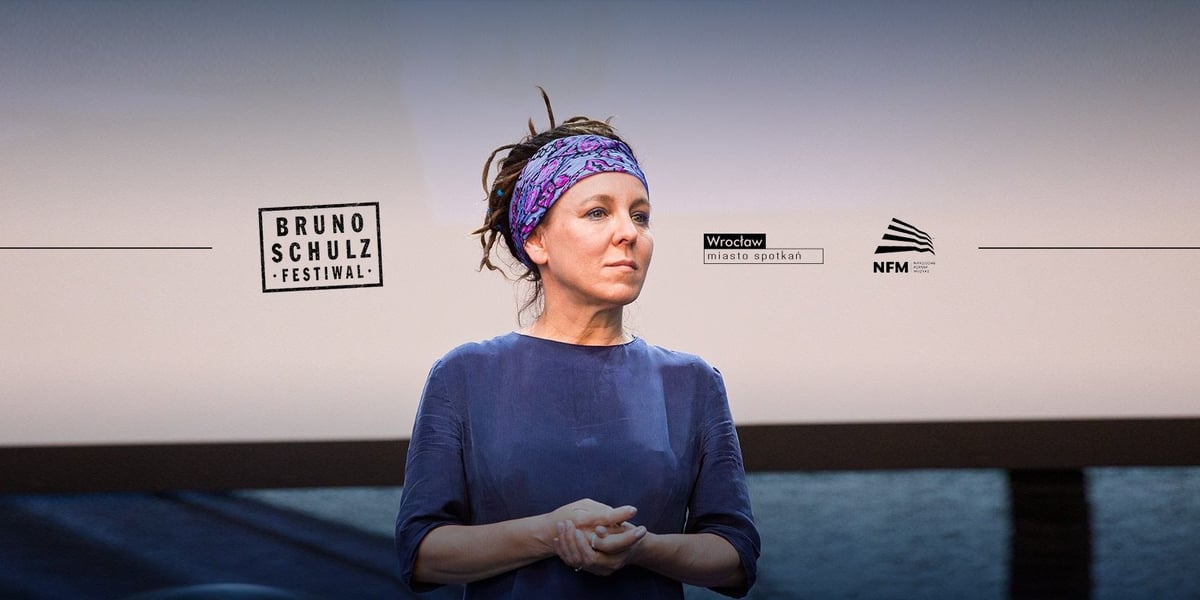Born in 1962 in Sulechów, Olga Tokarczuk is a person who is “not afraid of any work” – as the most famous Working Woman in Poland tends to say. Despite growing up in the Radziwiłł hunting lodge, she does not seem to have picked up any of the bourgeois habits.
Lady of the palace
The village of Kletnica is located in the Lubusz Voivodeship. It was there that Olga Tokarczuk spent the first 10 years of her life, in the former residence of the Radziwiłł family, built in 1884. Her parents worked at the People’s University of Lubusz Voivodeship, which taught youth, as well as adults. Her father, Józef Tokarczuk, taught dance classes.
Moving to the Opolskie Voivodeship
The Tokarczuk family then moved to Kietrz in the Opole region, near the Czech border. There, Olga Tokarczuk passed her matura exam at the C.K. Norwid High School, and then she started looking for a place, where she could study. Wrocław was close by and it was enticing due to the fact that it was a large academic centre, as well as an artistically developing Lower Silesian city; however, she did not end up there.
A psychologist from Warsaw
Instead, she decided to take up psychology at the University of Warsaw. As a volunteer, she cared for people with mental problems. She decided to work in a mental hospital, but after graduation she decided to leave Warsaw. At that time, she was still hiding her passion for literature, and she never published her first works.
A therapist from Wałbrzych
She moved to Wałbrzych and started working as a psychotherapist in the local mental health clinic. She loved this line of work, and she helped set up the first Alcoholics Anonymous clubs in the city.
At the age of 24 she had a son, Zbyszko. His father was also a psychologist with whom Olga Tokarczuk hosted integration groups and interpersonal trainings. In his professional career, Zbyszko followed in the footsteps of his parents – he graduated from social psychology studies.
A writer from Krajanów and Wrocław
26 years ago, Olga Tokarczuk found her next home in Krajanów in the Kłodzko District, in the municipality of Nowa Ruda. Today, she lives with her second husband, Grzegorz Zygadło, who is the first reviewer of her books and the person who takes care of all of her personal matters, particularly when the writer is on another of her countless journeys.
13 years ago, they settled in their home in Krzyki District in Wrocław. But the writer’s relationship with our city has been going on for much longer, because, as she said herself, she has always moved “along an enormous orbit around the planet Wrocław.” She first came here in the late 1960s as a 6-year-old child. She was struck by a terrifying emptiness, the effect of wartime destruction, as her mother explained to her.
Her calling – literature
Olga Tokarczuk took up prose, which has become her weapon of choice. The artist also wrote poems, but she never seemed to grow attached to poetry as much as she did to prose.
She debuted in 1979 in Na przełaj magazine, where she published her first short stories, using the pen name of Natasza Borodin. Her first published novel was the Podróż ludzi Księgi [Journey of the People of the Book] in 1993. The writer also published her works in Mandragora.
Her debut was followed by other novels, including E.E. (1995), Prawiek i inne czasy [Primeval and Other Times] (1996), Szafa [The Wardrobe] - a collection of short stories (1997), Dom dzienny, dom nocny [House of Day, House of Night] (1998), Ostatnie historie [Final Stories] (2004), as well as Bieguni [Flights] (2007), on which she worked for three years. You can read more about Olga Tokarczuk’s works HERE.
Olga Tokarczuk’s works have been translated into more than 35 languages. She won the Man Booker International Prize 2018 for Flights, as well as two “Nike” Literary Awards for Flights and The Books of Jacob (2015).
Activist
Olga Tokarczuk co-organised the International Short Story Festival, where authors of short literary forms from Poland and abroad present their works. She ran prose workshops as part of the Literary and Artistic Studies at the Jagiellonian University, as well as creative writing classes at the Opole University.
Since 2015, she has been organising the Mountains of Literature Festival in and around Nowa Ruda. Its programme features educational activities, debates, concerts, panels, shows, meetings, Nowa Ruda Poetry Meetings, workshops (film, culinary and literary) and exhibitions.
She cooperated with the Green Party and was a member of the editorial staff of Krytyka Polityczna. She is a feminist and supports environmental protection, animal rights and gender equality. She takes part in Pride parades.
